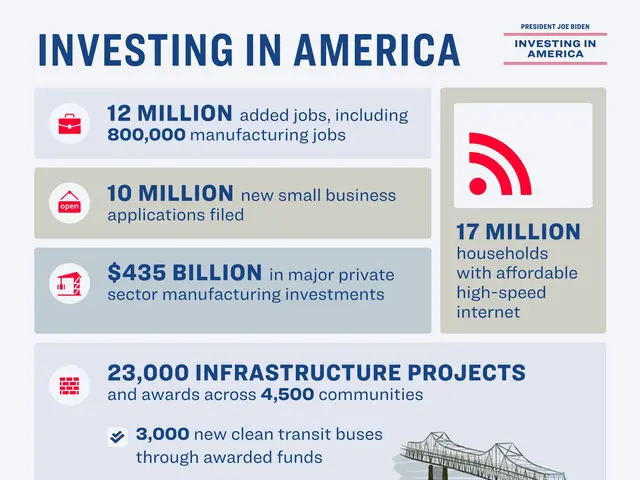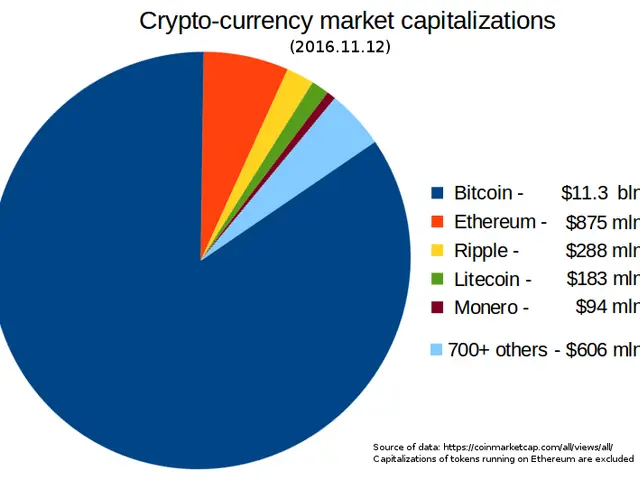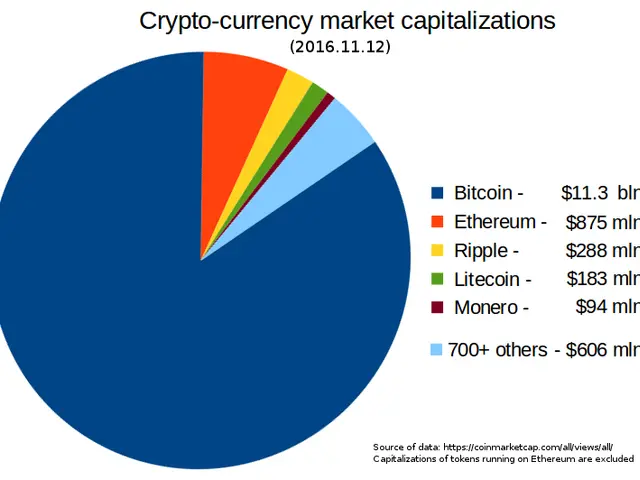Coinbase Challenges IRS Crypto Wide-Net: Deemed Unconstitutional in High Court
In an Unprecedented Move, Coinbase Joins the Fight for Digital Privacy
In a landmark legal battle challenging the Internal Revenue Service's handling of crypto user data, the digital currency exchange, Coinbase, has stepped into the fray. On April 30, Coinbase submitted an amicus brief to the U.S. Supreme Court, expressing concerns over potential privacy violations in crypto transactions.
The Supreme Court is currently adjudicating the Harper vs IRS case, where Bitcoin researcher James Harper has accused the IRS of overreach in its attempt to access user data. Back in 2016, the IRS requested data on 14,000 Coinbase users, justifying its request under the third-party doctrine, which posits that once data is voluntarily shared with a third party, like a crypto exchange, privacy protections are forfeited.
Coinbase Calls for Redefined Privacy Protections
Coinbase's brief to the Supreme Court argues that the third-party doctrine is antiquated, especially in the context of crypto transactions. According to the exchange, crypto exchanges should be considered more similar to platforms than custodians. Probable cause, rather than broad searches, should be the standard when it comes to requesting information from crypto exchanges, asserts Coinbase.
In the brief, Coinbase compares the IRS's data collection methods to the unlawful and unprecedented "John Doe summons" that targeted 14,355 Americans. The summons, which led to the acquisition of Harper's personal and financial information, was not only unjust, Coinbase argues, but also broke new ground in its scope.
A Supreme Court Ruling: Far-Reaching Implications
As the highest court in the U.S., the Supreme Court wields unparalleled influence over the legal system. Any ruling it passes becomes legal precedent, binding both the courts and the executive branch. If the Supreme Court sides with Coinbase and Harper in this case, it would fundamentally transform the government's powers with regard to user privacy.
Not only would this case impact the crypto industry, but it could also reshape digital privacy law, potentially affecting how government agencies access data from email providers, banks, and social media companies. As such, this case represents a pivotal test for Fourth Amendment rights in the digital age.
Coinbase's Ongoing Advocacy for Digital Privacy
In addition to its involvement in the Harper vs IRS case, Coinbase has been vocal about digital privacy issues. On April 30, 2025, the exchange's chief legal officer argued that digital accounts should be granted the same privacy protections as physical mail. This stance received backing from various industry groups, including the DeFi Education Fund and X (formerly Twitter).
Case Background
- In 2017, the IRS issued a "John Doe summons" to Coinbase, requesting data on over 500,000 users, including transaction histories and identities.
- James Harper, a Bitcoin researcher and Coinbase user, filed a lawsuit in 2020, alleging that this bulk data collection lacked individualized suspicion and violated privacy expectations for digital records.
Key Arguments
- Harper argues the IRS’s bulk data collection lacks individualized suspicion and violates privacy expectations for digital records.
- Harper challenges the 1970s-era legal precedent that allows warrantless access to data shared with third parties, contending it's outdated in the digital age.
- Coinbase believes the IRS's approach risks creating a "mass surveillance tool" for all online services.
Procedural Status
- Both the U.S. District Court and First Circuit Court have rejected Harper’s claims.
- Harper is seeking a writ of certiorari to overturn the third-party doctrine's application to digital records.
- The Supreme Court has yet to confirm whether it will hear the case. Updates are expected by June 2025.
- In its amicus brief to the Supreme Court, Coinbase calls for redefined privacy protections in crypto transactions.
- Coinbase argues that the third-party doctrine is antiquated, especially in the context of crypto transactions.
- Probable cause, rather than broad searches, should be the standard when it comes to requesting information from crypto exchanges, asserts Coinbase.
- The Supreme Court's ruling in the Harper vs IRS case could fundamentally transform the government’s powers with regard to user privacy.
- This case could reshape digital privacy law, affecting data access from email providers, banks, and social media companies.
- Additionally, Coinbase has been vocal about digital privacy issues, advocating for digital accounts to be granted the same privacy protections as physical mail.
- In 2020, James Harper, a Bitcoin researcher, filed a lawsuit alleging that the IRS's bulk data collection lacked individualized suspicion and violated privacy expectations for digital records.
- The Supreme Court has yet to confirm whether it will hear the Harper vs IRS case, with updates expected by June 2025.
- The ICO market, DeFi ecosystem, DEX platforms, and general-news outlets are closely watching the outcome of this case, as it could redefine the role of privacy in finance, business, technology, and politics.





